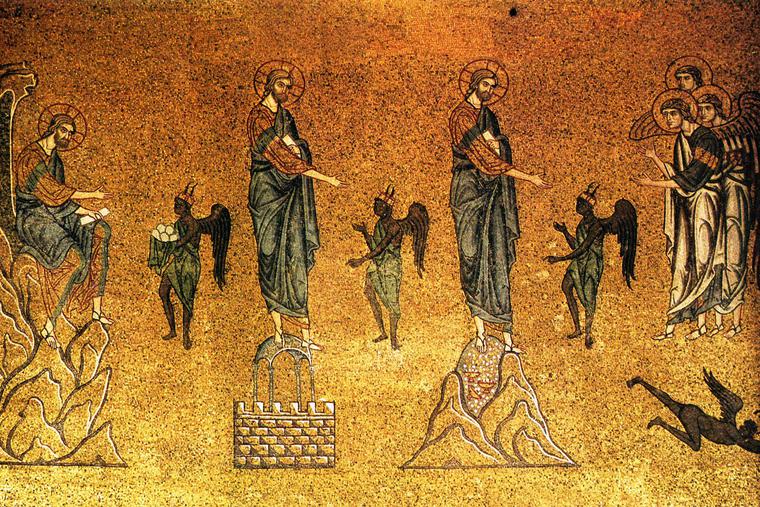What is Great Lent? Understanding Its Purpose in the Eastern Catholic Tradition
As we enter the sacred season of Great Lent, the Eastern Catholic Church invites us to embark on a profound spiritual journey of prayer, fasting, and almsgiving. This time of preparation leads us to the greatest feast of all—Pascha, the Resurrection of Christ. But what does Lent truly mean for us as believers? How can we embrace it in a way that transforms our hearts and deepens our faith?
The Biblical Foundation of Lent
The concept of fasting, repentance, and spiritual renewal is deeply rooted in Sacred Scripture. Christ himself fasted for 40 days in the desert, preparing for his public ministry: “Then Jesus was led up by the Spirit into the wilderness to be tempted by the devil. And he fasted forty days and forty nights, and afterward he was hungry” (Matthew 4:1-2).
Similarly, the Church invites us to walk this path, strengthening our faith through spiritual discipline. The 40 days of Great Lent mirror not only Christ’s fast but also the 40 years the Israelites spent in the desert, relying on God’s providence (Deuteronomy 8:2-3).

Fasting with Purpose – More Than Food Restrictions
Fasting is often misunderstood as simply abstaining from certain foods, but its purpose runs much deeper. The true essence of fasting is not about deprivation but about transformation.
The Church Fathers teach that fasting should be accompanied by an increase in prayer and acts of charity. As St. John Chrysostom reminds us: “Do you fast? Give me proof of it by your works. If you see a poor man, have mercy. If you see an enemy, be reconciled. If you see a friend enjoying success, do not be jealous.”
Why Do We Fast?
- To detach from worldly distractions – We refrain from indulgences so that we can focus more on God’s presence in our lives.
- To strengthen our souls – True fasting includes guarding our thoughts, words, and actions.
- To purify our hearts – As the Prophet Joel proclaims: “Return to me with all your heart, with fasting, with weeping, and with mourning; and rend your hearts and not your garments” (Joel 2:12-13).
Carrying Our Cross – What Christ Teaches Us About Endurance in Faith
Great Lent is a time of carrying our own crosses with patience and humility, just as Christ carried his for the salvation of the world. “If anyone would come after me, let him deny himself and take up his cross daily and follow me” (Luke 9:23).
Each sacrifice we make during Lent, whether small or great, unites us more closely to Christ’s suffering. Through fasting, prayer, and acts of kindness, we learn to bear our struggles with faith and trust in God’s will. Moreover, fasting allows us to remove distractions from our lives which take our focus off of God.
Eastern Catholic Traditions During Great Lent
In the Eastern Catholic Church, Great Lent is marked by unique and beautiful traditions that guide the faithful through this sacred season:
- Presanctified Liturgies – A special service celebrated on Wednesdays and Fridays, where the Eucharist, consecrated on Sunday, is received during the week to sustain the faithful in their journey.
- The Prayer of St. Ephrem – A Lenten prayer recited daily, asking God to remove the spirit of idleness and indifference and replace it with humility and love.
- Almsgiving and Confession – Lent is a time to reconcile with God and others, practicing acts of charity and seeking the Mystery of Repentance.

Ukrainian and Canadian Lenten Traditions
Ukrainian Catholic communities have long observed Pylypivka (St. Philip’s Fast) before Christmas, which echoes the themes of Great Lent. Many families prepare for Easter by:
- Making pysanky (Easter eggs) – An ancient tradition rich with Christian symbolism.
- Preparing Lenten meals – Borscht with mushrooms and beans, pyrogies replace meat and dairy.
- Living Lent as a Family – Great Lent is a time for families to grow together in faith through acts of prayer, charity, and love.
Families pray and make poklony (prostrations) during the Lenten prayers, visit cemeteries to remember their departed loved ones, light candles in church, and spend time with grandparents, sharing stories and faith traditions. Cleaning the home together can also be a meaningful way to prepare both physically and spiritually for Pascha. Acts of charity—helping those in need, donating to the poor, or supporting parish initiatives—allow families to live out Christ’s call to love and serve others.Lent is not just about personal reflection; it is a journey we walk together, deepening our faith as a family and as a community.
Embracing Lent in Our Lives
Great Lent is a time to refocus, renew, and grow in our relationship with Christ. Whether through fasting, prayer, or acts of kindness, each step brings us closer to the joy of the Resurrection.
Let us walk this journey together, embracing the sacred traditions of our faith. May this Lenten season be a time of transformation and grace for us all!
Looking for more spiritual guidance? Check out our past reflections on Lent and fasting:
Great Lent Archives: https://eeparchy.com/category/great-lent/

